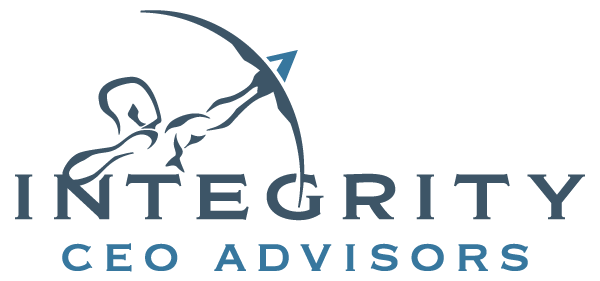Basic ICA Model/Framework:
As leaders, a paradigm built on God’s eternal truth and compatible best-in-class business practices is indispensable if we’re to maximize our performance and impact.
The most popular business leadership paradigm of the last generation is the “balanced scorecard” by Norton and Kaplan, an attempt to “balance” short and long-term business activities. They claim that company health is derived from performance across four distinct “perspectives”: customer/stakeholder satisfaction, internal business processes, financial performance, and organizational learning/growth.
Integrity CEO Advisors believes that life and leadership is actually infinitely richer, more meaningful, and more connected (or integrated) than the view expressed by the balanced scorecard. We believe that our God-given responsibility transcends the coming quarter or year’s financial performance or simply complying with the law of the land along the way. We believe that compelling leadership and competent general management requires that leaders not only steward the resources and opportunities entrusted to them, but that they lead integrated lives where character, competence, and caring are recognized hallmarks that enable them to build enduring, high-performance enterprises that serve all stakeholder groups well. In this way, high integrity leaders influence not just short and long-term performance, but they do this from both temporal and eternal perspectives. Their employees grow in prowess and business understanding top become "best in class" within their fields and other stakeholders are better off from having had a long-term association with them. To better crystallize this picture, ICA offers the following overarching paradigm for the Key Building Blocks for any high-performance business that general managers must deal with effectively:
- Guiding Principles: aligning with long-term vision, purpose & non-negotiable core values
- Strategy & Planning: strategic roadmap, competitive environment, levers to growth, funding expansion, board governance, long-term sustainability
- Execution: cascading objectives & key metrics, loose & tight controls, integrated sales & marketing, supply chain management, real-time pricing/cost/margin/cash flow management, asset management focus, technical competence, project management discipline, win-win negotiation, instilling continuous improvement
- Organization: talent (capabilities/commitment/capacity), teamwork, engagement, performance management, compensation, succession planning, recruiting & selection
- Stakeholder Impact: business model fruitfulness in serving each stakeholder group, both temporally and eternally
